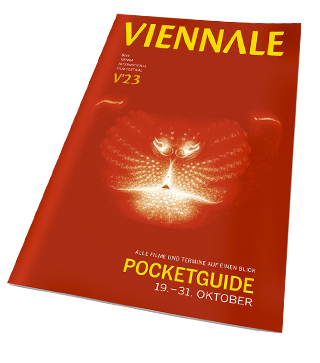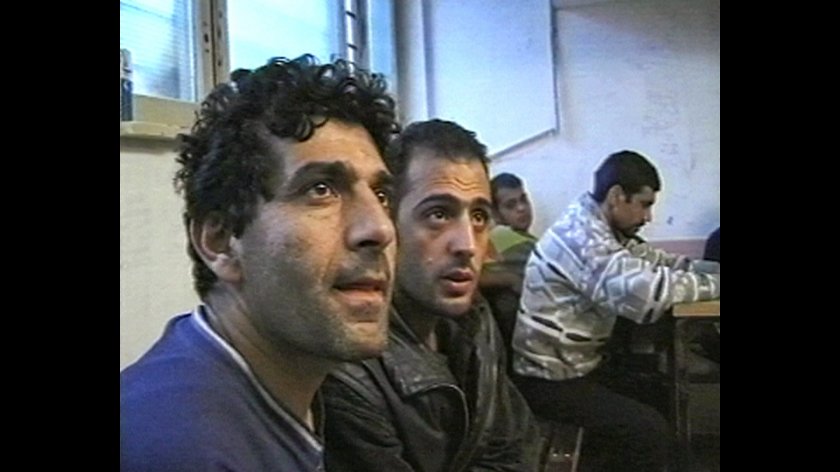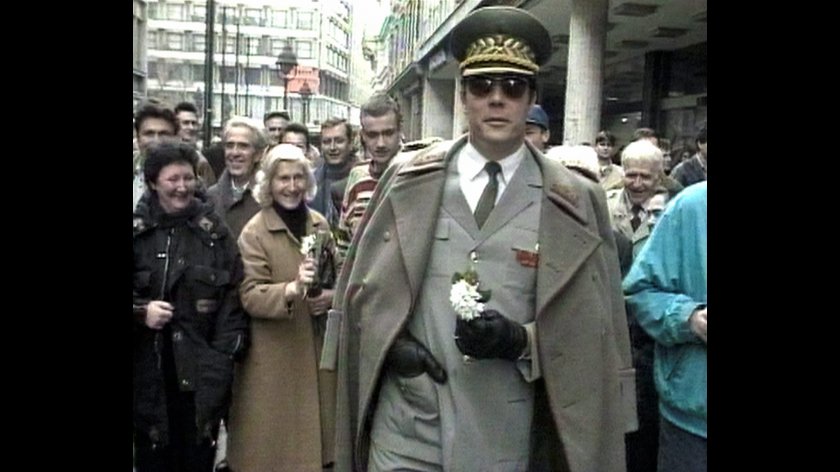Rani radovi
Early Works
Unter den Filmen, die nach dem Mai 1968 das Scheitern der Neuen Linken resümierten, ist RANI RADOVI einer der irrwitzigsten und zugleich bittersten. Die hysterische Energie, mit der in dieser Allegorie rund um die Studentin „Jugoslava“ (Milja Vujanović) ein Quartett Infernal die Peripherie zum Sturm aufs Zentrum mobilisieren möchte, verpufft wie die Explosionen ihrer Molotov-Cocktails. Das Kollektiv liefert sich selbst Omnipotenz-Fantasien und ottomühlartigen Orgien aus, experimentiert mit freier Liebe, freiem Scheißen und freier Marx-Lektüre. Aber die bäuerliche Klasse sieht ratlos zu, und als sie doch agiert, trift die Gewalt nur die Revolutionäre selbst. (Robert Weixlbaumer)
In Anwesenheit von Želimir Žilnik.
At once a milestone of political cinema, a highly innovative allegorical work of art, and an act of scandal, Žilnik’s first feature marks a decisive point in his career. The film is inhabited by the same honest doubts that inform much of the director’s work: What do ideas mean when set against the chaos of life? What happens when intentions meet actual human experience? What do slogans sound like when you live in the mud? Three men follow a woman called Jugoslava into a revolutionary project. Inspired by the writings of Marx, they want to encourage peasants and workers to fight for their rights. But their enthusiasm is marked by failure and incongruity, all the idealism drowns in primitive behavior. “If we continue like this, there will be no one left to live under communism,” says one of the protagonists, who also serve as slogans trying to work with people they can’t change. The protagonists’ inability to draw a line between diferent forms of oppression speaks volumes about the contradictions of the leftist struggle in recent decades. Yet the film’s youthful low-budget energy and self- destructive anger display a radical questioning of the dominant values in socialist Yugoslavia ... With this film, Žilnik created punk before it even existed. (Patrick Holzapfel)
In the presence of Želimir Žilnik.
Želimir Žilnik: NEWSREEL ON VILLAGE YOUTH, IN WINTER (1967, K), THE UN- EMPLOYED (1968, K), JUNE TURMOIL (1969, K), BLACK FILM (1971, K), THE WOMEN ARE COMING (1972), VERA AND ERŽIKA (1981), THE FIRST TRIMESTER OF PAVLE HROMIŠ (1983), STANIMIR DESCENDING (1984), THE SECOND GENERATION (1984), GOOD MORNING BELGRADE (1985), MARBLE ASS (1995), KENEDI GOES BACK HOME (2003), EUROPE NEXT DOOR (2005), OUR MAN IN GABON (2014), LOGBOOK SERBISTAN (2015), THE MOST BEAUTIFUL COUNTRY IN THE WORLD (2018), AMONG THE PEOPLE: LIFE & ACTING (2018)
- Milja Vujanović
- Bogdan Tirnanić
- Čedomir Radović
- Marko Nikolić
- Slobodan Aligrudic
- Želimir Žilnik
- Branko Vučićević
- Karpo Aćimović Godina
- Karpo Aćimović Godina
- Karl Marx & Friedrich Engels






